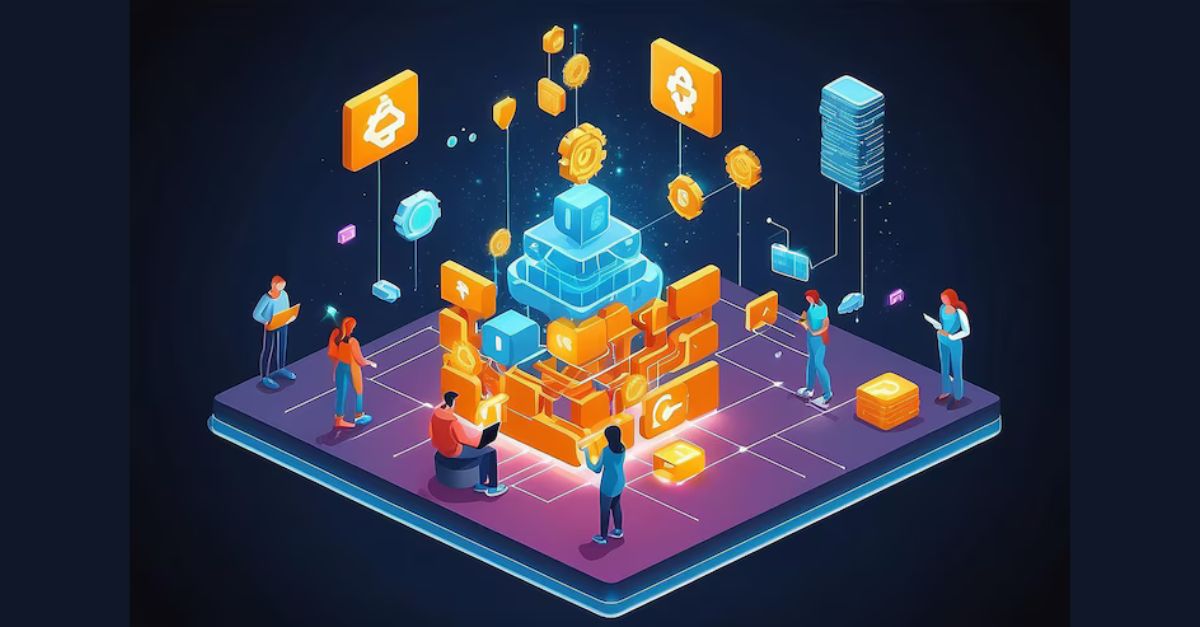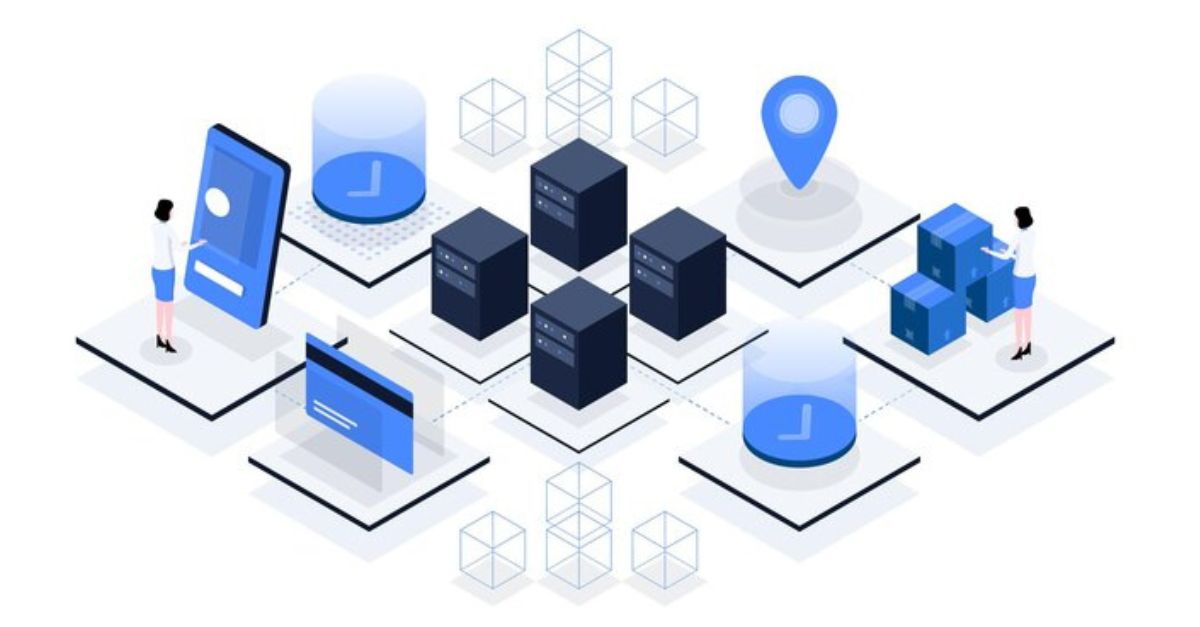
Unlocking Liquidity of Real-World Assets: The Role of Blockchain in Tokenizing Illiquid Assets
Real assets play a pivotal role in the global economy, with the real economy’s balance sheet boasting an impressive $520 trillion in value. However, despite this substantial figure, the total value of on-chain, real-world assets currently stands at a mere $118.6 billion.
This stark contrast encapsulates a significant challenge: the liquidity gap in real-world assets.
Liquidity is a formidable challenge for a substantial portion of real-world assets. However, the dawn of blockchain technology offers a beacon of hope, promising to revolutionize how we perceive and manage asset liquidity.
In this blog, we will delve deep into how blockchain tokenization can transform the liquidity landscape for real-world assets, reshaping the financial ecosystem. But, first let’s understand what tokenizing on blockchain means.
Blockchain tokenization, and how it unlocks liquidity of an asset
Blockchain tokenization is the process of converting real-world assets into digital tokens on a blockchain. These tokens represent ownership or a stake in the underlying asset, providing a secure and transparent way to digitize and trade traditional assets.
In the context of real-world assets, tokenization involves representing tangible assets, such as real estate, art, or commodities, as digital tokens on a blockchain. Let’s understand it with the help of a prime piece of real estate, traditionally a large, indivisible asset. Through blockchain tokenization:
- The property can be divided into digital tokens, each representing a share of ownership.
- Smart contracts can automate processes such as rent distribution or voting on property management decisions.
- These tokens can be traded on blockchain-based platforms, allowing for efficient and transparent transactions.
This example illustrates how blockchain tokenization can unlock liquidity, increase accessibility, and bring transparency to markets.
Unlocking liquidity of illiquid real-world assets with tokenization
Illiquid assets are investments that cannot be quickly converted into cash without a significant loss in value. These assets often lack an active market, making it challenging for investors to buy or sell them promptly. Real-world examples of illiquid assets include:
Real Estate Properties
Traditional real estate transactions involve lengthy processes, making it challenging to quickly buy or sell properties. Consider the example of a residential property. Selling an entire house can take months as the market doesn’t have enough buyer at a given point of time.
Tokenization allows fractional ownership, making it easier for investors to buy and sell shares in a property, enhancing liquidity. The property is represented as digital tokens, allowing investors to buy and sell fractions of the house on a blockchain-based platform.
Fine Art and Collectibles
Art and collectibles are inherently illiquid due to their uniqueness and the specialized market they cater to. For examples, selling rare artwork requires finding a buyer in a specialized market.
By tokenizing assets like art and collectibles, investors can trade their digital shares, providing liquidity and enabling a broader investor base.
Private Equity and Venture Capital
Investments in private companies can be highly illiquid, often requiring long holding periods. Consider raising investment for a startup. Private equity investments often involve long holding periods with limited liquidity.
With the help of tokenization, investments in startups can be represented as tokens, enabling investors to trade these tokens on blockchain platforms, enhancing liquidity.
Intellectual Property
Monetizing patented technology involves negotiations, legal agreements, and can be time-consuming. The patent or intellectual property is tokenized, allowing inventors or companies to sell shares in the technology. This opens avenues for faster transactions and liquidity.
Agricultural Land
Buying or selling agricultural land often involves navigating through various legal procedures, making it a slow process. The farmland is represented as tokens, enabling investors to trade fractional ownership. This provides liquidity to the agricultural real estate market, allowing quicker transactions.
| Assets | Traditional Problems | Tokenization As A Solution |
| Real Estate Properties | Lengthy Transaction ProcessesLimited Immediate Buyers | Fractional OwnershipEasier Buying and SellingEnhanced Liquidity through Digital Tokens |
| Fine Art and Collectibles | Unique and Specialized MarketLimited Buyer Availability | Digital RepresentationTradable Digital SharesBroader Investor Base |
| Private Equity and Venture Capital | Long Holding PeriodsLimited Liquidity | Tokenized InvestmentsTradable Tokens on Blockchain PlatformsImproved Liquidity for Investors |
| Intellectual Property | Negotiations and Legal ProceduresTime-Consuming Monetization | Tokenized Intellectual PropertySale of Shares in TechnologyFaster Transactions and Enhanced Liquidity |
| Agricultural Land | Complex Legal ProceduresSlow Buying/Selling Process | Representation as TokensTradable Fractional OwnershipQuicker Transactions and Enhanced Liquidity |
Beyond Liquidity – Benefits of Tokenization in Transforming Real-World Asset Market
Blockchain tokenization offers a myriad of benefits that go beyond addressing the challenges of illiquidity in traditional markets. Let’s explore how this innovative approach transforms markets and benefits various stakeholders:
- Increased Accessibility: Tokenization allows fractional ownership, enabling a broader range of investors to participate in high-value assets.
- 24/7 Market Availability: Blockchain tokenization facilitates continuous trading, breaking down barriers of time and location.
- Efficiency in Transactions: Tokenization streamlines transactions, reducing the time and effort required for buying or selling assets.
- Global Market Participation: Tokenization enables participation from investors worldwide, fostering a more inclusive market.
- Transparency and Security: Blockchain ensures transparent and secure transactions, with every transaction recorded on an immutable ledger.
Unlocking the Liquidity of Your Assets with Blokminers
While the benefits of blockchain tokenization are evident, the process itself can be complex and daunting for property owners or real-world asset holders without specialized knowledge. This is where Blokminers steps in as a game-changing solution, simplifying the tokenization journey for everyone.
Blokminers stands out as the ally that empowers property owners to unlock the potential of their assets without the burden of complexity. By democratizing access to the benefits of blockchain, Blokminers ensures that every property owner, regardless of their technical background, can participate in the transformative journey towards enhanced liquidity, accessibility, and market participation.
The journey to revolutionize traditional markets begins with a single step — let Blokminers be your guide.


